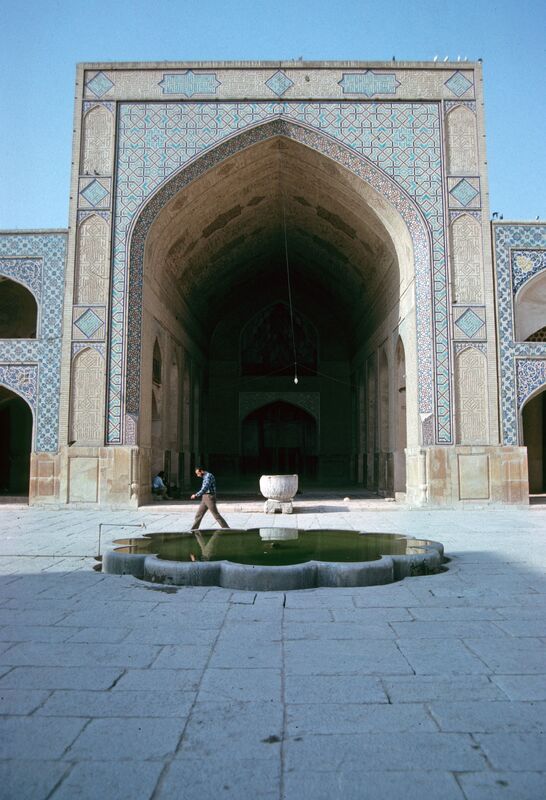Masjid-I-Jami of Isfahan
Item
- Title
- Alternative Title
- City
- Address
- Country
- Date Created
- Century
- Classification
- Building Type
- Style/Period
- Cultural Context
- Materials
- Techniques
- Subject
- Description
- Source
- Photographer
- Date of Photography
- Rights Holder
- Access Rights
-
Masjid-I-Jami of Isfahan
-
Jāmeh Mosque of Isfahān
-
Jāme' Mosque of Isfahān
-
مسجد جامع اصفهان
-
Eşfahān, Eşfahān, Iran
-
Kohneh square
-
Iran
-
8th century-17th century
-
8th century-17th century
-
Architecture and City Planning
-
Razi, Azari, and Isfahani (style)
-
Seljuh, Ilkhanid, and Safavid(dynasty)
-
Islamic (period)
-
Iranian
-
Persian
-
brick
-
mosaic tile
-
marble
-
vaulting
-
Jame mosque of Isfahan
-
Northern Iwan
-
Darvish Soofeh
-
Partial view of Northern Iwan( Darvish Soffeh) and part of Northern Riwaq from central courtyard
-
Located in the historic centre of Isfahan, the Masjed-e J?mé (‘Friday mosque’) can be seen as a stunning illustration of the evolution of mosque architecture over twelve century, starting in ad 841. It is the oldest preserved edifice of its type in Iran and a prototype for later mosque designs throughout Central Asia. The complex, covering more than 20,000 m2, is also the first Islamic building that adapted the four-courtyard layout of Sassanid palaces to Islamic religious architecture. Its double-shelled ribbed domes represent an architectural innovation that inspired builders throughout the region. The site also features remarkable decorative details representative of stylistic developments over more than a thousand years of Islamic art.
-
Saif Haq
-
Saif Haq
-
8/1/1991
-
© Saif Haq
-
Users must request permission from the copyright holder for all use in publications, including theses and dissertations.
“Masjid-I-Jami of Isfahan”, Arch Design Images, accessed November 29, 2025, https://exhibits.lib.ttu.edu/s/archlib/item/14128


